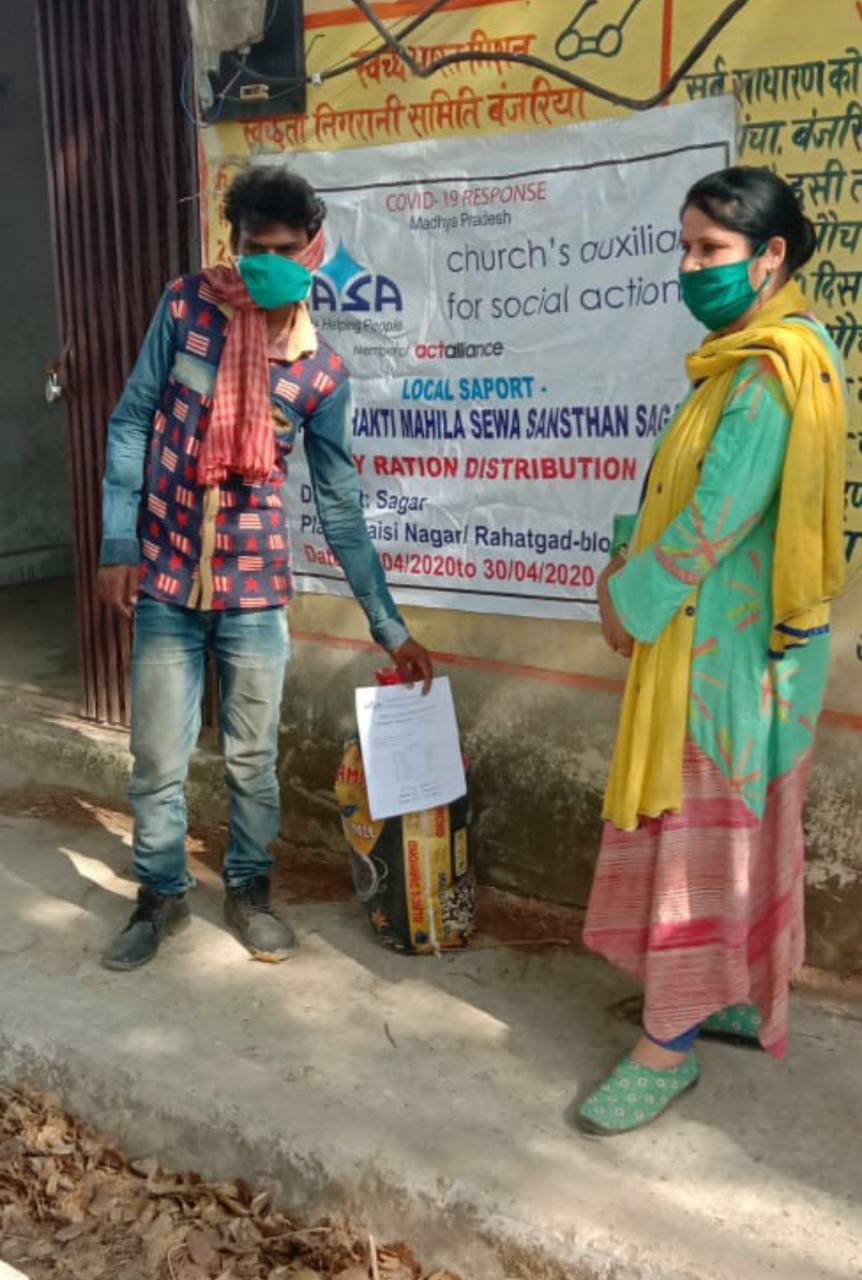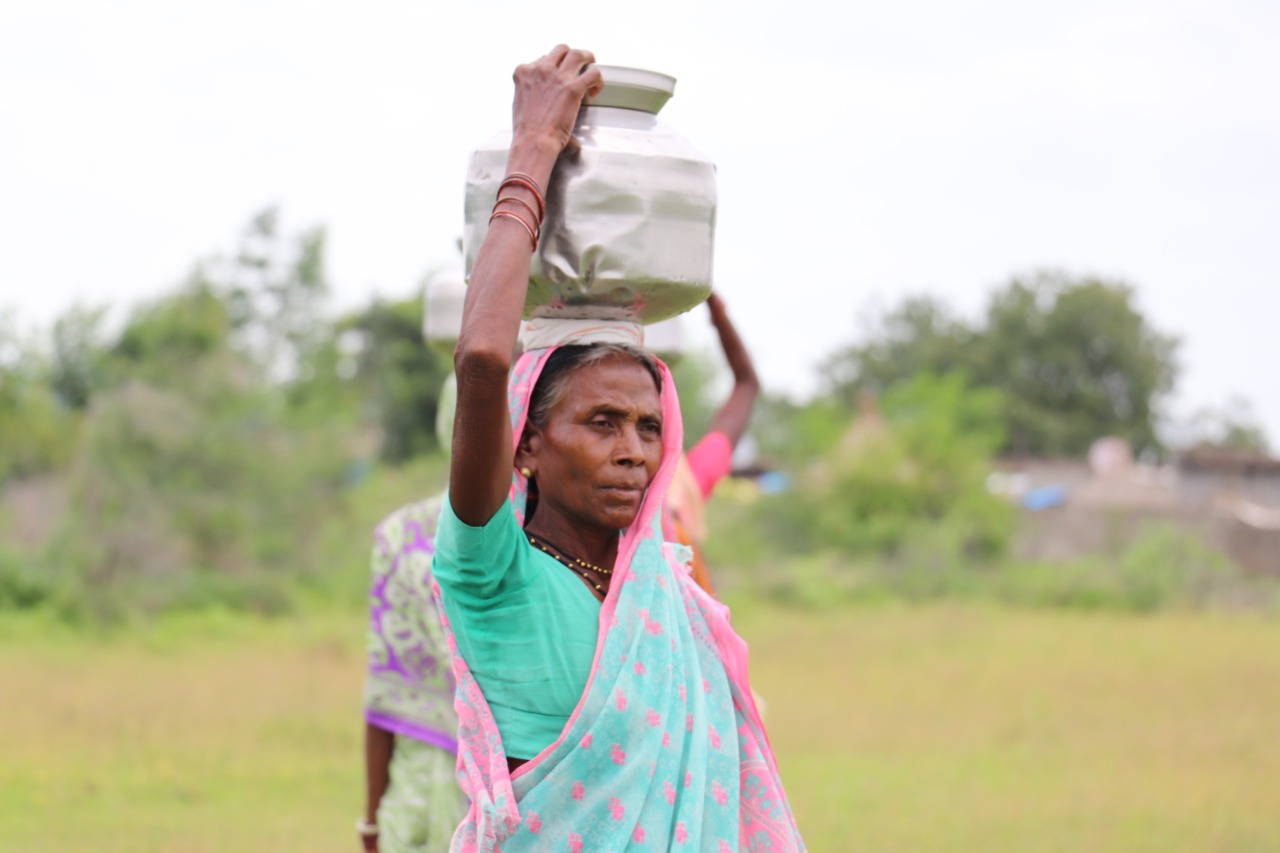- home

- Publication & Resources

- Blog
- Giving Hope to the Marginalised

Giving Hope to the Marginalised
The sudden nation-wide lockdown led to what was probably one of the largest mass migration of people in recent times. Out of jobs to earn a living, out of a roof to live under and with little to zero access to food and medicine, the migrant workers from various parts of the country were forced to move back to their hometowns and villages.
Shubham Yadav, a 28 year old migrant worker recounts his experience of the journey he and his family had to take because of the lockdown. He said, “I was traveling on a local bus with my family with almost no money to feed them. The bus was filled with so many people that even the thought of breathing needed an effort and on the way, I was thinking to myself about what did we do to deserve this and is this road ever going to end?”. Shubham Yadav is a migrant worker from Chouki, Madhya Pradesh who, with his family migrated to Dhudiya, a small town in MP.
The family moved to Dhudiya and everyone from Shubham’s parents to his siblings started working to earn in a living. Because in their village Chouki, the employment opportunities were extremely scarce as the land was no longer cultivable. This forced Shubham and his family to leave their hometown in search of work. And so they ended up in Dhudiya as daily wage labourers. Shubham and his family worked in a construction site for almost 8-10 months while living in an interim hut close to the construction site along with other immigrant workers. The family together managed to earn a combined lump-sum of approximately Rs.12000 per month due to the shortage of work on a daily basis.
“Life is good for those who are privileged in these times. While we just struggle throughout our lives to have food in our bellies until the day we die” said Shubham as he cried with broken dreams in his eyes. The sadder part is that his story not the only story like this. Just when Shubham and others like him thought that life could not bring anything worse to their plates, the outbreak of Covid-19 and the subsequent national lockdown only worsened their already miserable state. While everyone in the country was regulated to stay inside their homes, the ones without a permanent home were just hushed away like and left on their own as if their lives didn’t matter.
As a result, all of the immigrant workers and their families such as Shubham’s were forced to go back to their native villages. Thousands of people rushed to railway stations, bus stations and some even just walked to get back to their homes. Shubham and his family were forced to move back to Chouki, on 23rd March, 2020, without any kind of financial backing or saving to support themselves in a place which was already doomed when they left.
Ever since the pandemic hit the nation, it has been CASA’s constant effort to help and aid those who are suffering in these testing times and are all alone. Therefore, CASA in collaboration with Shram Shrakti Mahila Seva Sansthan (SSMSS) conducted a survey in Banjariya and found out that Shubham and his family’s condition, they didn’t have the most basic of necessities like food and water in order to sustain their lives. Shubham and his family didn’t get any assistance whatsoever from any organisation or individual. Ever since they returned to their hometown, they had been helpless and were living miserably. After learning about the family’s troubles from the survey, on 30th April, 2020, a ration kit and proper masks were distributed to the affected family members.
Due to the joint efforts of CASA and SSMSS, now Shubham and many others like him are finally able to meet their daily necessities and sustain a healthy standard of living. It has given home to the affected families, assuring them that they are not alone in these times of crisis. They have received help from CASA and other individuals who want to make this world a better place for everyone. Now Shubham has the opportunity to look for work and earn a daily wage in their own villages without worrying about COVID-19 and the lockdown. The survey helped identify the migrant workers according to their skills and link them with district level agencies for employment opportunities. Every member of these families can now go to work and earn a living to support themselves.
 Previous Blog Post 16 Days of Activism against Gender-Based Violence
Previous Blog Post 16 Days of Activism against Gender-Based Violence Impact of Climate Change on Women
Impact of Climate Change on WomenFeatured Post

International Women’s Day -2021
8 Mar 2021
International Women’s Day -2021 is very special for CASA. It’s a delight to announce, CASA with the support of the Church of Sweden has launched an exclusive Gender Desk to emphasise the importance of Gender Justice work. CASA has been working for Gender Justice all throughout and across our constituencies in all these years. Gender Desk comes to add vigour […]

Overcoming Gender and Poverty Barriers
Poverty has been an inevitable problem in India since the beginning of time. The increasing problems of poverty caused by overpopulation and the unequal distribution of wealth among the people have led to a huge impact on the life of millions in the rural as well as the urban area. A person has to acquire […]

Impact of Climate Change on Women
16 Jan 2021
Climate change is a prevailing problem globally whose hazardous repercussions extend beyond the environment. Shrinking glaciers, extinction of plants and animal species, mutation, rise in the Earth’s average temperature and triggered seasonal fluctuations, are some of the impacts of climate change that have already grabbed the headline. Certain early predictions pertaining to climate changes had […]



